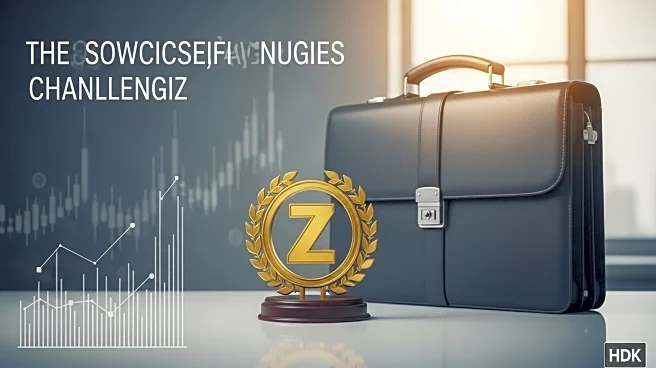What's Happening?
The rise in unemployment among Americans under 25, especially recent graduates, has become a significant economic concern in 2025. Federal Reserve Chair Jerome Powell and top economists have acknowledged the challenges faced by Gen Z in a 'no hire, no fire' economy. Powell noted the difficulty young job seekers face in breaking into the labor market, attributing the issue to a broadly slowed economy and hiring restraint rather than the impact of artificial intelligence. Economists from Goldman Sachs and UBS have echoed Powell's sentiments, emphasizing the broader hiring freeze narrative affecting new workforce entrants.
Why It's Important?
The implications for Gen Z and minority job seekers are severe, with experts warning of 'scarring effects' that could impact earnings, homeownership prospects, and wealth accumulation. The hiring freeze disproportionately affects recent college graduates, who are empirically hit hardest during such periods. This situation highlights the need for policy interventions to support young job seekers and address the mismatch between education and industry demands. The economic slowdown and cautious hiring practices pose significant challenges for Gen Z, potentially leading to long-term economic consequences.
What's Next?
Powell has expressed concern about the low job finding rate and the potential impact of AI on youth unemployment. While AI may play a role, the primary drivers of the hiring challenges are the broader economic slowdown and hiring restraint. Policymakers may need to consider measures such as new graduate hiring tax credits or expanding national service and apprenticeship programs to provide work experience for young people. The focus on addressing youth unemployment is crucial to prevent long-term economic and social consequences.
Beyond the Headlines
The decline in college enrollment and the rise of trade employment among blue-collar entrepreneurs highlight a shift in career paths for young workers. This trend may offer alternative opportunities for those facing challenges in the traditional job market. The emphasis on skills and experience over formal education could reshape the landscape of entry-level employment, providing new avenues for Gen Z to navigate the economic challenges they face.









